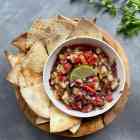Teens: Your Brain on Junk Food

Junk foods - we know they aren’t healthy, but we find them so hard to resist. Celebrating with these treats often starts when we are kids with birthday cakes, Easter eggs and Halloween. Our candy crushes can then continue through our teenage years (and far beyond). Neuroscientists studying the effects of diet on the brain think that adolescence is the perfect storm for the negative effects of junk food, so let’s delve into why exactly the teenage brain is SO into junk food…
Looking back, eating junk food was a huge part of my teenage life. I knew it wasn’t nutritious, but damn – it’s cheap, tasty and everywhere! When I was in high school, I often snuck out to a local MacDonald’s or a donut shop. My weekends were spent socialising with friends hanging out at malls – gossiping over burgers, milkshakes, fries or pizza.
My adolescent junk food habit wasn’t weird - teenagers are the greatest consumers of fast foods overall (1). With adolescence comes the freedom to choose what you eat, and teenagers are likely to choose foods that are tasty and cheap. TV commercials for soft drinks and junk foods are often targeted at children and teens, further triggering urges to eat these foods when you see them (2).
WIRING THE TEENAGE BRAIN
Adolescence is a critical period of physical development. Puberty kicks in and surging hormones shape you from a child to an adult. Massive changes are happening in the brain too...
Brain scans show that the prefrontal cortex is the last part of the brain to mature functionally in our early twenties (3). Rats and mice go through adolescence too and also really love junk foods, so this means neuroscientists can intricately study the effect of junk foods on the brain during this critical period of neurodevelopment (4).
The main job of the prefrontal cortex is to perform brain functions like decision making and self-control (5). So it’s no surprise that teenagers are irrational, impulsive and take risks - the key control centre of the brain hasn’t finished being wired yet!
When self-control is limited, you’re less likely to resist the urge to eat candy or say no to getting fries and a milkshake with your friends. The delayed negative consequences of excessively eating junk foods like weight gain can easily be brushed aside in the face of immediate rewards (5). The rapid growth spurt during puberty is also partially protective against dramatic weight gain – another reason to dismiss the consequences of eating calorific junk food.
SWEET TEMPTATIONS
Your brain is naturally hardwired to pick the tastiest, fattiest and sweetest foods as it gets the biggest rewarding dopamine kick when you eat these foods. And guess what, the adolescent brain is fine-tuned to be at its peak level of sensitivity to rewards by having lots of receptors for the feel-good chemical dopamine – further driving the desire for junk foods (6).
Repeated stimulation of the brain results in long-lasting changes, which means that the brain’s reward system adapts to frequently eating fast food.
Repeated stimulation of the brain results in long-lasting changes, which means that the brain’s reward system adapts to frequently eating fast food. As the brain is in a heightened state of flux during adolescence, excessively stimulating the reward system during this period by eating junk foods can lead to permanent alterations in experiencing pleasure once it fully matures (8).
This could mean developing a long-lasting “sweet tooth” during adolescence that encourages overindulgence to achieve candy-driven dopamine kicks for the rest of your life. Furthermore, studies have also shown that there is also a darker side to these tasty treats that goes far beyond a sweet tooth, because they have a serious impact on mental health...
NOT SO SWEET SIXTEEN
Teenagers are known for being moody and volatile. The key emotion centre of the brain, the limbic system, matures before the prefrontal cortex. So for teens there is less regulation over emotions, and that can lead to turbulent moods. Those little things that adults think are nothing serious are often really big deals to teenager.
Negative emotions and stressful experiences encourage us to comfort eat fatty and sweet foods (9), so it’s not surprising that adolescents are drawn to rewarding junk foods to ease their teenage angst.
In the lab, teenage rats that ate calorific junk food diets were more anxious as adults (10) – showing that poor diets can have a long-lasting impact on mood and mental health.
70% of mental health problems arise during adolescence, including schizophrenia, bipolar disorder, depression and addiction (11) - pinpointing the vulnerability of the teen brain when it comes to mental health.
What’s more, a staggering 70% of mental health problems arise during adolescence, including schizophrenia, bipolar disorder, depression and addiction (11) - pinpointing the vulnerability of the teen brain when it comes to mental health. Here at NeuroTrition, we work regularly with teens so see these mental health conditions begin during this time. And we know mental health and diet go hand-in-hand, so aim to spread the message that good nutrition at this life stage is so critical for young people.
FOR TEENS - KNOWLEDGE IS POWER
Adolescence is the quintessential time for impulsivity, thrill-seeking and turbulent moods. It’s also a time for eating junk foods, but the health consequences need to be understood. Junk foods aren’t age-regulated like alcohol or tobacco, so young people can have unrestricted access to them.
The teenage brain is a work in progress so nutritious food choices should be encouraged to ensure healthy brain development.
Information about diet choices needs to be accessible to young people. The teenage brain is a work in progress so nutritious food choices should be encouraged to ensure healthy brain development. If I’d been told that junk food could reduce my ability to study, I would probably have thought twice about eating a whole bag of Tim Bits while revising for exams!
GETTING YOUR TEENS TO EAT BETTER - 3 PROVEN NEUROTRITION WAYS
Author: Orsha Magyar
For Dr. Reichelt, renowned neuroscientist and super smarty-pants, she would have been more inclined to eat better if she had been told the effects junk food was having on her scholastic abilities. So if your teen is really into school, talking to him or her about how poor food choices can impact their ability to learn, remember and perform academically whereas a healthy diet can promote brain and mental health may work wonders! Alternately, if they’re into sports, focus on how eating well is so good for their bones, muscles, tissues and sports performance and recovery. We at NeuroTrition often end up using glowing, clear skin, healthy nails and luscious locks as the bait to get them to listen up about eating healthier - and it really works!
There are three other tried, tested and true ways that we use to make adolescence (and beyond, if we can get kids in the groove at this age!) a time of healthy eating: (1) start with breakfast, (2) make it fun, and (3) keep it simple.
(1) Start with breakfast
Break the fast your teen’s been in all night with BREAKFAST! Any breakfast will bring their blood sugar out of the overnight slump and back into a healthy range. But an unhealthy meal loaded with refined, simple carbs will cause a blood sugar crash 30 - 60 minutes after eating, whereas a healthy breakfast will prevent a blood sugar crash.
Properly balanced smoothies are a great choice (try this one, teens love it - and you can easily make it a protein shake for your athlete teen!). Or if your kid’s feeling adventurous and is currently into the bone broth cool-factor, opt for this fun one (bonus: you can make gummy candies out of it!!).
(2) Make it fun
Make foods that your teens already enjoy - then just make some healthy hacks to them! A few examples of what we’ve done, and that have worked really well, include our teen-approved mac and cheese, fish and chips, grilled cheese and donuts (yep, these donuts are good for you!). In keeping with the breakfast theme above, if your teen is going to Starbucks or Tim Horton’s and grabbing a sugar (or artificial sweetener-laden) Frappaccino why not score some serious parent points and dazzle them with a Neurocinno instead?!?
Try to get your teens involved, by taking them to farmers markets or health food stores that support local farmers, so they can connect with where their food is coming from. And aim to involve them in the cooking process (you’d be surprised how into it they are, especially if it’s something cool!). Finally, try to have at least one sit-down family dinner a week where you can eat mindfully together - then work your way up to 2, 3 and possibly even more mindful meals!
(3) Keep it simple
Out of sight, out of mind right? I know it’s going to be difficult to completely eliminate junk foods from your teen’s life, but you can ensure that what they’re eating at home is healthy. So make your home a healthy haven (and please model healthy eating to them!).
This means that when their hunger hits, or when they’re scrambling to get out the door to school or sporting events, there is something good for them to grab. Have fruits and veggies - in all forms, like dried, fresh and frozen - available and accessible (this means cut up for them, because science tells us teens will eat it if it’s prepared for them!).
Instead of pop, have a pitcher of water with fresh herbs or lemon and cucumber in it, and put it somewhere in plain view for them. Or, if you want to give them some pop, make them our version of Ginger Ale, they will love it!
And finally, have healthy alternatives to fast food and frozen foods for them. We’ve had great success creating recipes that parents can batch make and freeze for teens to re-heat in a pinch - making them the ultimate frozen dinner! We’ve also had great feedback and results with our treat recipes that parents or teens can batch make enough for, say, 1 or 2 months’ worth and freeze, then grab before running out the door to enjoy for snacks throughout the day as they naturally thaw in their backpack.
- References
-
- Davis, B., and Carpenter, C. (2009). Proximity of fast-food restaurants to schools and adolescent obesity. Am. J. Public Health 99:505–510.
- “10 Years On: New evidence on TV marketing and junk food eating amongst 11-19 year olds 10 years after broadcast regulations”. Christopher Thomas, Lucie Hooper, Robert Petty, Fiona Thomas, Gillian Rosenberg and Jyotsna Vohra. 2018.
- Giedd, J. N., Blumenthal, J., Jeffries, N. O., Castellanos, F. X., Liu, H., Zijdenbos, A., et al. (1999). Brain development during childhood and adolescence: a longitudinal MRI study. Nat. Neurosci. 2:861–863.
- Reichelt, A.C. and Rank, M.M. (2017). The impact of junk foods on the adolescent brain. Birth Defects Research: Reviews. 109:1649–1658.
- Casey BJ (2015). Beyond simple models of self-control to circuit-based accounts of adolescent behavior. Annu Rev Psychol 66:295–319.
- Braams BR, van Duijvenvoorde AC, Peper JS, Crone EA (2015). Longitudinal changes in adolescent risk-taking: A comprehensive study of neural responses to rewards, pubertal development, and risk-taking behavior. J Neurosci 35:7226–7238,
- Friemel, C. M., Spanagel, R., and Schneider, M. (2010). Reward sensitivity for a palatable food reward peaks during pubertal developmental in rats. Front. Behav. Neurosci. 4:39.
- Naneix, F., Darlot, F., Coutureau, E., and Cador, M. (2016). Long-lasting deficits in hedonic and nucleus accumbens reactivity to sweet rewards by sugar overconsumption during adolescence. Eur. J. Neurosci. 43:671–680.
- Dallman MF. Stress-induced obesity and the emotional nervous system. Trends Endocrinol Metab. 2010;21(3):159–165.
- Baker, K.D. and Reichelt, A.C. (2016). Impaired fear extinction retention and increased anxiety-like behaviours induced by limited daily access to a high-fat/high-sugar diet in male rats: Implications for diet-induced prefrontal cortex dysregulation. Neurobiology of Learning and Memory. 136:127-138.
- Government of Canada (2006). The human face of mental health and mental illness in Canada. Ottawa: Minister of Public Works and Government Services Canada.










